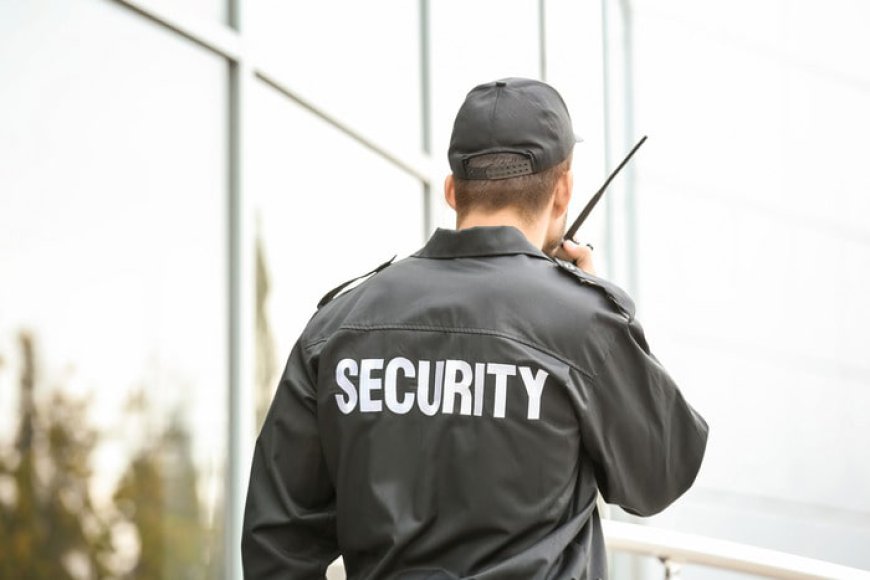The Role of Security Guards Handling Emergencies During Events
Security guards play a crucial role in managing emergencies at events, ensuring the safety of attendees and staff.

Events, whether they are corporate gatherings, concerts, or large-scale public festivals, bring together diverse groups of people. While they are designed to be enjoyable and memorable experiences, emergencies can arise at any time. From medical crises to crowd management challenges, security guards play a pivotal role in ensuring the safety and security of attendees. Understanding how to handle emergencies effectively is a cornerstone of event security. This article delves into the strategies, responsibilities, and best practices for security guards to manage emergencies during events.
Preparedness: The Foundation of Emergency Handling:
The cornerstone of effective emergency management is preparation. Security guards must undergo rigorous training to handle a wide array of scenarios, including fire outbreaks, medical emergencies, and potential threats like active shooters. Preparation begins with understanding the event’s layout, exits, and potential risk areas. Pre-event planning sessions should include a thorough review of emergency protocols and the establishment of clear communication channels among security personnel.
Security teams often conduct drills and mock exercises to simulate emergencies, which helps guards stay alert and confident when actual crises occur. Such practices also allow for identifying and rectifying any gaps in the emergency response plan. In essence, being prepared minimizes confusion and enhances efficiency during real-life situations.
Maintaining Situational Awareness:
Security guards must possess strong situational awareness during events. This means constantly scanning the environment, observing crowd behavior, and identifying potential risks before they escalate. For instance, noticing the early signs of a scuffle or spotting someone in distress can prevent the situation from worsening.
Crowd control is a significant part of maintaining situational awareness. Events often attract large gatherings, and managing these crowds requires skill, tact, and vigilance. Guards should be stationed at strategic locations such as entrances, exits, and near high-traffic areas. Maintaining open pathways and ensuring orderly movement can prevent stampedes or bottlenecks, especially during emergencies.
Responding to Medical Emergencies:
Medical crises, such as sudden illnesses, injuries, or even cardiac arrests, are common during events. Security guards must be trained in basic first aid and CPR to provide immediate assistance before medical professionals arrive. Recognizing the symptoms of distress and responding quickly can make a significant difference in life-threatening situations.
Clear communication is essential during medical emergencies. Guards should use radios or other communication devices to alert paramedics and guide them to the location. In cases where an injured person needs to be moved, guards must do so with caution to prevent further harm. Familiarity with the event’s medical station locations ensures swift action and reduces response time.
Dealing with Threats and Violence:
Events are occasionally disrupted by threats such as bomb scares, active shooters, or violent attendees. Security guards must be equipped to handle such high-pressure situations without causing panic among attendees. The first step is to assess the severity of the threat and implement evacuation or lockdown protocols if necessary.
Guards must work closely with law enforcement and follow established procedures for neutralizing threats. Effective crowd communication is vital during these times. Guards should calmly instruct attendees on where to go and what to do, using clear and concise language. Ensuring that panic does not spread is critical to avoiding further chaos or injuries.
Fire Safety and Evacuation Procedures:
Fires are one of the most dangerous emergencies at crowded events. Security guards must be familiar with fire safety protocols, including the operation of fire extinguishers and the quickest evacuation routes. Regularly checking for fire hazards, such as blocked exits or faulty electrical equipment, can prevent potential disasters.
During a fire emergency, guards play a crucial role in leading attendees to safety. This includes directing people to designated exits, assisting those with disabilities, and ensuring no one is left behind in dangerous areas. Coordination with fire departments and first responders ensures a smooth and effective evacuation process.
Communication: The Lifeline in Emergencies:
Effective communication is a key factor in successfully handling emergencies. Security guards must maintain clear and constant communication with their team, event organizers, and emergency services. Using reliable communication tools such as two-way radios or mobile applications designed for event management ensures quick information exchange.
Guards should also communicate with attendees during emergencies to provide guidance and reassurance. For example, announcing evacuation instructions calmly and authoritatively can prevent panic and confusion. Regular updates help attendees feel informed and safe, even in the face of uncertainty.
Post-Emergency Actions and Evaluations:
Once the immediate emergency has been resolved, security guards must focus on post-incident actions. This includes assisting with investigations, documenting the event, and providing feedback during debriefings. A thorough evaluation of the emergency response helps identify what went well and areas needing improvement.
Security guards are also instrumental in restoring order after an emergency. Whether it’s ensuring safe re-entry after an evacuation or managing traffic outside the venue, their role continues until normalcy is restored.
Final Thought:
Handling emergencies during events is a critical responsibility for security guards. Their ability to remain calm, act decisively, and follow protocols can mean the difference between chaos and safety. Through preparation, situational awareness, and effective communication, security guards ensure that events run smoothly, even in the face of unexpected crises. Event organizers must invest in skilled and trained security personnel, as their presence provides attendees with a sense of safety and confidence, ensuring the success of any gathering.

 larzigospi
larzigospi